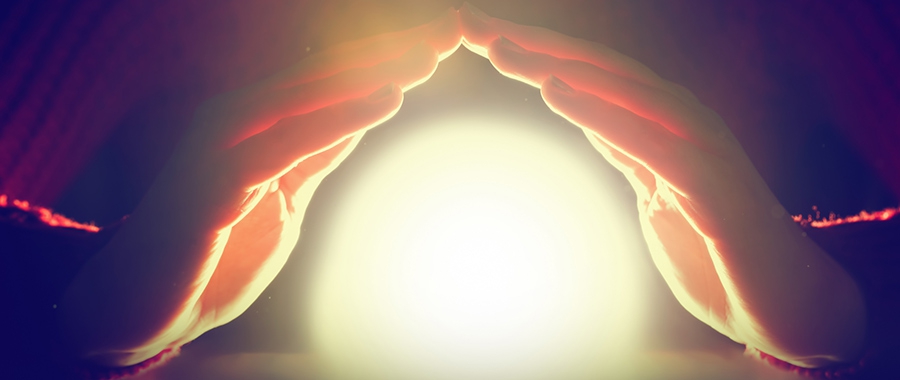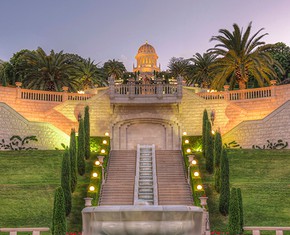The views expressed in our content reflect individual perspectives and do not represent the authoritative views of the Baha'i Faith.
For the unwashed, peace-loving, lost souls gathered together in 1967 to hear Mr. Samandari speak, the idea of only one religion made total sense.
Baha’u’llah’s proclamation that he was the latest, most recent, divine teacher or prophet truly resonated with those particular open-minded misfits.
He wrote at great length about how he was the most recent messenger from God in a great linked chain of special, luminous souls that included Krishna, Abraham, Buddha, Moses, Jesus and Muhammad. He spoke about the fact that all religions are actually ONE religion, ever-updated, refreshed, renewed. He called religion “The Changeless Faith of God, Eternal in the past, eternal in the future.” He said that God wanted humanity to progress spiritually and had always sent teachers to help with its maturation—and that there would be more of these messengers, like him, like Jesus, that would continue to come in the future.
But back to my folks’ hippie house. We sang songs, I’m sure of it. Jerry Lew was probably there, a sweet, long-haired Chinese hippie intellectual who always carried a guitar. I remember his song from when I was a child, lyrics taken directly from the writings of Baha’u’llah and sung with tremendous atonal gusto:
Glory not in this that you love your Country. Glory rather in this that you love mankind! Unity. That’s how the world must be!
In the Baha’i world singing and music are an integral part of celebration, prayer and congregation.
Try to picture, in this milieu, a tiny, beloved, nonagenarian Baha’i from a farming village in Persia, who had hung out with the prophet and founder of this rapidly-spreading religious movement. Visualize it if you can: this donkey rider, calligrapher, world traveler, radiant speaker, is sitting in a chair at my parents’ house, holding fat baby me in his miniscule lap and speaking in effusive Farsi about Baha’u’llah, the Glory of God, as his son translates.
Draped on the windowsills and radiators and cushions and floor are dozens of bohemians, like I said, people who regularly used the words “deep” and “groovy,” people who still believed (before we became as cynical as we are today) that world peace was possible. They were packed into my parents’ crowded house, listening raptly, drinking in everything that remarkable man said, flabbergasted, all young idealists who had probably never been in a room with a Middle-Easterner before—people who had probably never even tasted hummus.
Perhaps they thought they were coming to see some kind of guru. He was most definitely not one of those. He had no following, accepted no money, wrote no books or treatises, and in no way sought to draw attention to himself, his story or personal philosophy—but instead always directed his attention and praise to the person and revelation of Baha’u’llah.
My parents later spoke to me (when I was of speaking age) about spending time with such a saintly, radiant personage, and told me about one aspect of him that truly touches my heart. This man, this tiny man, this man with so many titles and names and honors, this man who has travelled the world, met with religious leaders and dignitaries, heads of state and countless well-known Baha’is, this man who is revered wherever he goes, looked up to by so many and lauded in so many ways—how does he act, this man?
This man is the most humble person you’d ever want to meet. My dad relayed to me that even when the great unwashed of Seattle’s university district came to hear him speak, no matter what the questions people asked of him, how ridiculous, offbeat, or how specific to that time period in American cultural history, Mr. Samandari treated every single person with the utmost respect and dignity. He treated no person differently. He showed zero signs of self-importance, but moved through the world as a humble servant.
Mr. Samandari wrote in a short essay about his memories of Baha’u’llah; about having the honor and privilege of being present while he revealed holy writings and tablets. Think about it: a man describing first-hand, divine revelation moving through a sanctified human vessel, a messenger of the divine. He described the scene in 1892 in Akka, Palestine, as follows:
Twice I had the honour of being present in His room during the revelation of the Holy Verses. No one was there except His secretary… On these two precious occasions… as Baha’u’llah paced the room and chanted verses, I could gaze upon Him and contemplate His luminous face, and behold the vision of the majesty of God and His divine Kingdom. This was indeed a great blessing. As He revealed the verses of God, His face was radiant. Sometimes, He would gesture with His hands while He looked through the window onto the sea.
The verses were revealed sometimes in a melodious voice, and sometimes with majesty and power—depending on the content of the revealed words. For instance, when the subject was prayer, a heavenly melody was heard; while admonitions and words of warning were uttered with the power of the Lord of lords!
Baha’u’llah Himself tells us that day and night the verses descended like torrential rain. From this, whoever is mindful will ask: What can He mean, that the verses descended like torrential rain? This means, without thought… without deliberation. At the highest possible speed, without any premeditation, these utterances would be revealed.
This is the first attribute of the holy Manifestations … As the Blessed Beauty [Baha’u’llah] says: ‘This thing is not from Me, but from One Who is Almighty and All-Knowing.
Outrageous, right? It’s like someone was there when the Buddha was revealing wisdom to his followers under the Bodhi tree, Muhammad was dictating the Quran or Jesus giving the ‘Sermon on the Mount.’ For me, a member of the Baha’i Faith, for one who believes that the words and revelation of Baha’u’llah were divinely bestowed, this recollection feels incredibly profound.
















Comments
Sign in or create an account
Continue with Googleor